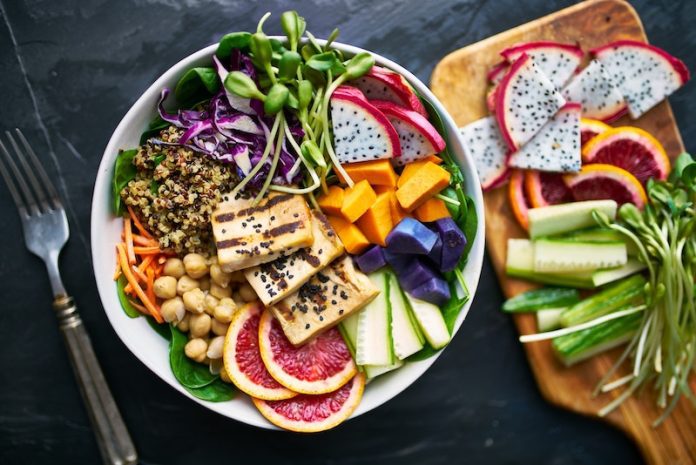
A buzzword in many dietary discussions, “Veganism,” has sprouted from niche circles into mainstream plates, sparking curiosity and a kaleidoscope of opinions about its impacts on our health.
The vegan diet, which gently nudges animal products off the plate to make room for plants, grains, and legumes, claims its fame for a myriad of ethical, environmental, and health reasons.
Let’s plunge into the studies and simmer down the findings into a hearty, digestible stew of insights on the pros and cons of embracing a vegan diet.
Blooming Benefits: The Rosy Perks of Going Vegan
When we weave through the research meadows, a bouquet of benefits seems to blossom from adopting a vegan diet. From your heart to your hydration, let’s unveil the perks that have been plucked from scientific studies:
Heart Happiness: Studies have consistently found a cheerful correlation between a vegan diet and heart health. A large study published in the Journal of Nutrition in 2019 affirmed that vegans might be less likely to develop heart disease, thanks to a diet naturally low in saturated fats and cholesterol.
Weight Wonders: Research, like that from a study in the Journal of General Internal Medicine, indicates that individuals on a vegan diet may find an ally in managing and losing weight, owing to generally lower calorie intake.
Sugary Stability: The vegan diet has also demonstrated potential in stabilizing blood sugar levels, making it a sweet spot for preventing type 2 diabetes, as per research shared in the American Journal of Clinical Nutrition.
These benefits sprout from a diet that is rich in fruits, veggies, and legumes, which generously shower our bodies with nutrients, fiber, and antioxidants.
Wilting Worries: Potential Pitfalls of Veganism
While the vegan diet beams with numerous benefits, research also points towards some potential pitfalls that need to be navigated with mindful munching:
B12 Blues: A significant concern amongst researchers and nutritionists is Vitamin B12, which is primarily found in animal products.
A deficiency in B12, as noted by the National Institutes of Health, can lead to nerve damage and anemia, so supplementation or fortified foods are often recommended for those on a strict vegan diet.
Iron Inquiries: While plants do offer iron, the type they provide (non-heme iron) is not absorbed as efficiently by our bodies as the iron from meat (heme iron).
A study in the American Journal of Clinical Nutrition emphasizes the importance of mindful meal planning to ensure iron needs are met on a vegan diet.
Protein Puzzles: Obtaining enough protein can be a puzzle that vegans need to piece together carefully, ensuring a blend of different plant proteins to provide all essential amino acids, as per insights from the Journal of the International Society of Sports Nutrition.
Plating the Perfect Vegan Diet: Balancing the Scales
Embarking on a vegan voyage involves charting a course that ensures all nutritional needs are met through meticulous and varied meal planning.
While it’s bountiful in many nutrients, certain key players like B12, iron, and protein necessitate a strategic approach, often involving supplementation or fortified foods, as the British Nutrition Foundation recommends.
In summary, whether you’re venturing into veganism for the animals, the environment, or your health, your journey can be beautifully beneficial with the right knowledge and planning.
Remember, before you turn a new leaf in your dietary chapters, consulting a healthcare professional or a dietitian can ensure your vegan voyage is both nutritious and delicious, nurturing your body from root to tip.
Cheers to cultivating a conscious and nourishing relationship with the food on your plate!
Follow us on Twitter for more articles about this topic.
Copyright © 2023 Scientific Diet. All rights reserved.





